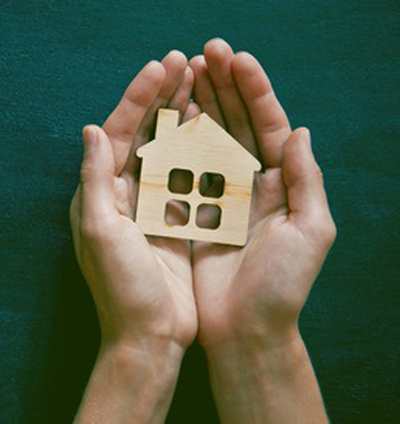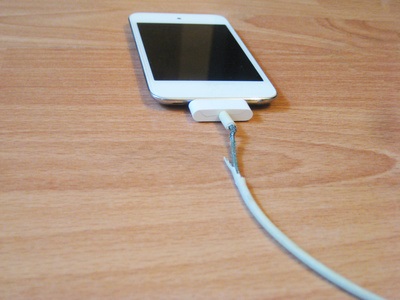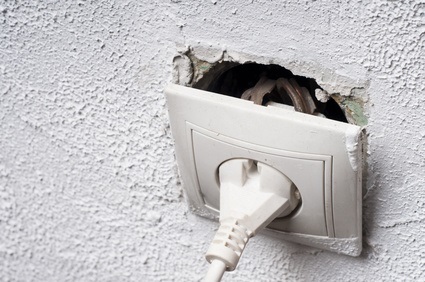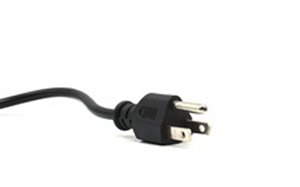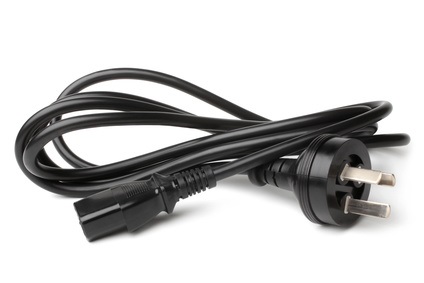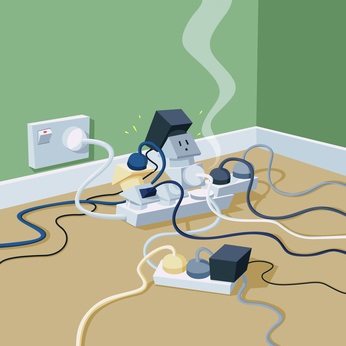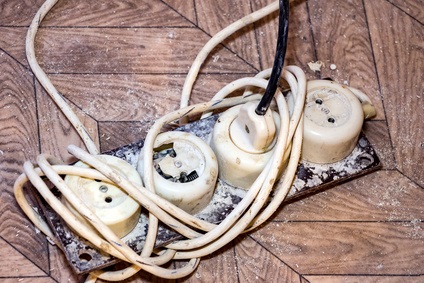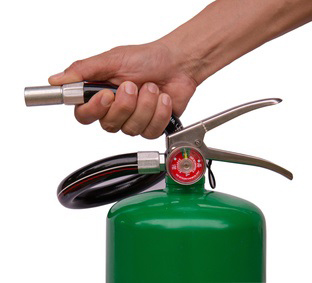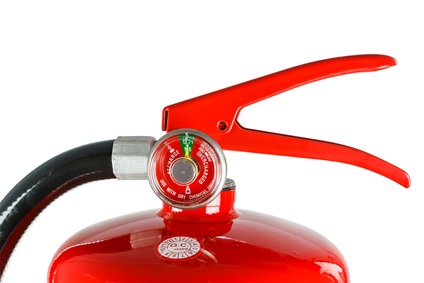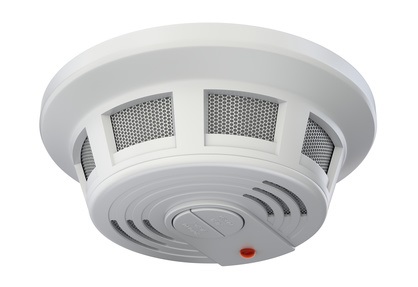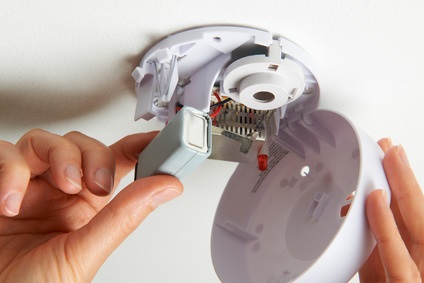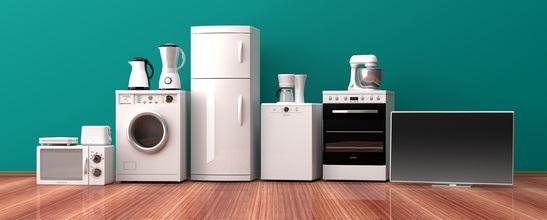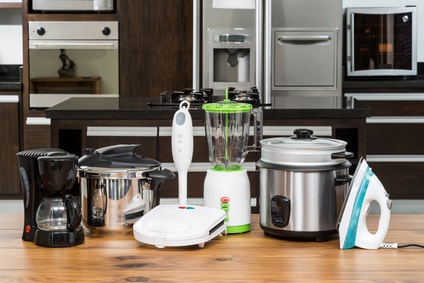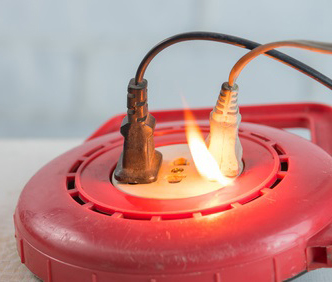HOME SAFETY
Home safety, wherever we live, is one of our most important objectives. The lives of our families and pets, as well as our treasured belongings depend on the status of our home safety.
In this article, we discuss a few of the things that can compromise our home safety, especially in the area of fire prevention, if we do not constantly keep our guard up.
POWER CORD HOME SAFETY
The power cord plays an integral part in the use of electricity in the home. Anything plugged into an outlet is worthless without that spark of energy we rely on virtually every minute of every day. We are made well aware of this anytime the power goes out! Without electrical power in our home, just about nothing works.
We cannot ignore or forget what carries the electricity to the various devices in our homes…the power cord. We often hide a good number of power cords for appearance sake and it makes sense to pull them out periodically and check them. Also, check those extension cords we use to increase the reach of those electrical cords as well.
Here are some home safety tips about power cords that can help protect your home and family:
CHECK FOR DAMAGE
Make sure your power cords don’t have any cracks or breaks and aren’t frayed in any way. It is always safer to replace rather than repair them.
CHECK FOR FIT
When you plug a cord into a wall
outlet, it should be snug, not loose and falling out of the socket. The socket itself should be securely in place as well.
THE THIRD PRONG
The third prong is an important safety component of modern outlets, as it grounds the electrical current. NEVER remove the third prong from cords. If your outlets are old and outdated, consider having them replaced by a licensed electrician.
MATCH CORDS TO USAGE
Choose cords that are of proper weight and length and that can carry the electrical load appropriate for the device being powered. When replacing cords for items that have replaceable power such as AC adapters, make sure the new cord has the correct input and output volt amounts. Ask your electrician or electrical supply store for details, if needed.
PLACE THEM CAREFULLY
Make sure all cords are placed where they won’t be a tripping hazard. NEVER put them under rugs or other furniture, especially heavy items, which can crimp and break the cords.
HOW (and WHERE IS YOUR FIRE EXTINGUISHER?
House fires occur more often than you might think. Some of the more common house fires start in the kitchen, often from cooking. A small grease fire can quickly grow and become devastating. Other fires can ignite from faulty wiring or over-loaded or overworked appliances. Still others are accidents, such as from turning over a kerosene-fired heater or a burning candle. These are just a few potential disasters that can happen in the home and start out as relatively small fires.
When ANY of those events occur, being ready for action is vital. Calling the fire department is at the top of the list. Battling even the smallest of fires without help on the way can be deadly.
DOES EVERYONE IN THE HOME KNOW WHERE THE FIRE EXTINGUISHER IS?
When a fire does occur, it’s natural to want to grab the fire extinguisher. But…where IS it? If you were to ask anyone in your home where the fire extinguisher is, would you be surprised by the responses? Sadly, being unfamiliar with the location of the fire extinguisher is common.
WHAT TYPE OF FIRE EXTINGUISHER?
While pointing out where the fire extinguisher is may be easy to relay to family members, there is another question…What type of fire extinguisher should you have in the home? This is a question you should ask of your fire-fighting professionals. Not having the proper extinguisher can be as deadly as not having one at all!
HOW MANY FIRE EXTINGUISHERS ARE NEEDED?
Another question is… How many fire extinguishers should you have? Again, this is a question for your fire-fighting professionals who will be more than happy to give you an assessment. (Home safety is their issue as well.) The truth is, you should have several fire extinguishers placed strategically throughout your home, especially in areas prone to fire.
HOW DO YOU OPERATE A FIRE EXTINGUISHER?
Finally, everyone in the household needs to know how to operate the extinguisher. According to FEMA, there are 4 basic steps that could be remembered with the acronym PASS:
- Pull the pin and hold the extinguisher away from you and release the locking mechanism.
- Aim low and point the extinguisher at the base of the fire.
- Squeeze the lever slowly and evenly.
- Sweep the nozzle from side-to-side.
HOW LONG DO THEY LAST?
Be sure to display a date on your fire extinguishers as they will need to be replaced at some point in time. The average extinguisher remains in good condition between 5 to 15 years.
It is a good idea to check that the needle on the pressure gauge is in the green zone, which indicates that the pressure is still good.
The lifespan of a fire extinguisher varies greatly depending on its condition. There are several factors which can affect the condition of a fire extinguisher. These include the following:
- The rubber hose or valves may crack or break open.
- The locking pin on the lever may come out.
- The lever itself may be loose or broken.
A quick check monthly of each fire extinguisher unit can assure home safety should a small fire erupt in your home.
SMOKE ALARMS FOR HOME SAFETY
By using quality smoke alarms and ensuring they are
kept in good working order (maintained and tested regularly), you can ensure you
are protecting your home and family. Here are some tips:
CHOOSING THE PROPER TYPE OF SMOKE ALARM
There are many options for types of smoke alarms available online and in stores.
The most important consideration is one that uses two types of detection: ionization and photoelectric. Using a dual sensor alarm system adds a layer of home safety protection for your family.
- The ionization detector option sounds the alarm faster when a fire is a fast-flame type.
- Photoelectric detectors sound the alarm best when a fire is slow and smoldering.
INSTALLING THEM PROPERLY
Smoke alarms need to be installed outside each bedroom and in the hallway or central area of each level in the home as well as in the living room and kitchen.
The alarms should be mounted on the ceiling, since heat and smoke rise. Keep them several inches from the wall, and away from both cold air returns and fresh air supply vents.
MAINTENANCE AND TESTINGMost fire alarms come with a simple button for testing purposes. Once each month, safely climb up on a chair or ladder and push the button. (You can also use a broom handle if it will reach). A loud and very irritating screeching sound will emanate, indicating it is ready for action. Pushing the button again usually turns it off.
Remove dust, cobwebs, and anything else that could interfere with the operation of the smoke alarm as well.
Don’t forget to change the batteries on an annual basis, although some have up to 10 years battery life. Set a reminder on your phone or tablet, or pencil it in on a paper calendar.APPLIANCE SAFETY
When we use the term ‘appliance,’ we are usually referring to kitchen appliances such as stoves, refrigerators, dishwashers, and microwaves. But the term can also refer to smaller electrical items, such as space heaters, toasters, toaster ovens, stovetops, curling irons, hairdryers, etc., all which can generate heat. Even gas stoves most likely will use electricity to ignite the flame.
The most important tip here is to make sure, when applicable, there is plenty of space from any appliance that generates heat and anything nearby that can ignite. For example, papers attached to a refrigerator with a toaster close by. Or a clothes irons left on or placed on something ignitable. Try to purchase small appliances such as coffee makers and clothes irons with automatic shutoffs. These, too, should be checked periodically and turned off manually whenever possible.
Any appliance close to a water source should be checked to prevent shock hazards that might jeopardize home safety.
With appliances such as clothes dryers, make sure
all vents, both inside and outside the home are cleared out periodically and the
residue properly removed from the area. Look into having your air ducts cleaned professionally, if applicable.
And, finally, don’t forget to check all power cords and connections on a regular basis to make sure they are not loose or compromised by cracks or breaks.
HOME SAFETY
The number of appliances that use electricity in the home is mind-boggling. With that comes the issue of safety. Keeping our homes safe from fire and other hazards while enjoying the benefits of anything powered by electricity is of utmost importance.
We hope some of the above tips will be helpful in reminding you of some of the things that could easily be overlooked when it comes to maintaining home safety.
"The Cleanest Clean You've Ever Seen."
by
ABC Oriental Rug & Carpet Cleaning Co.
130 Cecil Malone Drive Ithaca, NY 14850
607-272-1566

Ken and Harriet Adams
Owners of ABC
130 Cecil Malone Drive Ithaca, NY 14850
For directions, Click Here.
OPEN:
Mon through Thur-8am to 5pm, Fri-8am to 4:30pm
Saturdays10am to 1pm
ABC Oriental Rug is on Facebook!
We regularly post tips and information about your carpet, rugs, upholstery, and tile and grout so please visit us often.
We update our Facebook page with our latest discounts and we are also offering exclusive promotions to our Facebook fans. These are limited and short notice promotions.
When you like our page, you will also be able to claim your special gift from us!
"Like Us"
on Facebook
and find out
what's going on!

ABC
Carpet & Rug
Spotting Guide
Did you know that our ABC Responsible Care Spotter can get those pesky spots out of your carpet and will work equally as well on your clothes and upholstery?
Stop by our office and pick one up. They are $5.00 + Tax but if you have carpets or upholstery cleaned in your home or business, just request a free one from your Technician.
And don't forget to fill out the form above to download your free ABC Spotting Guide!


